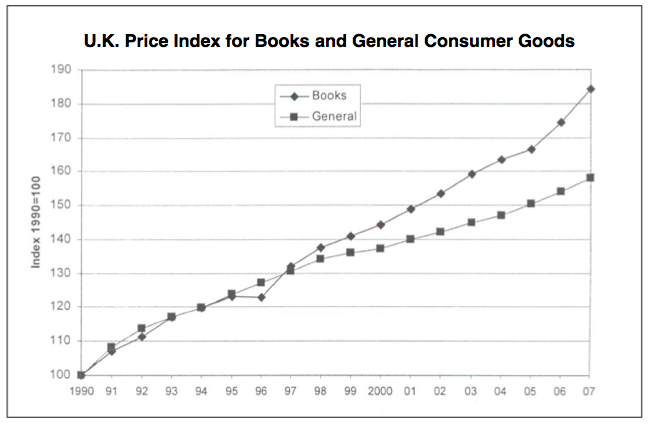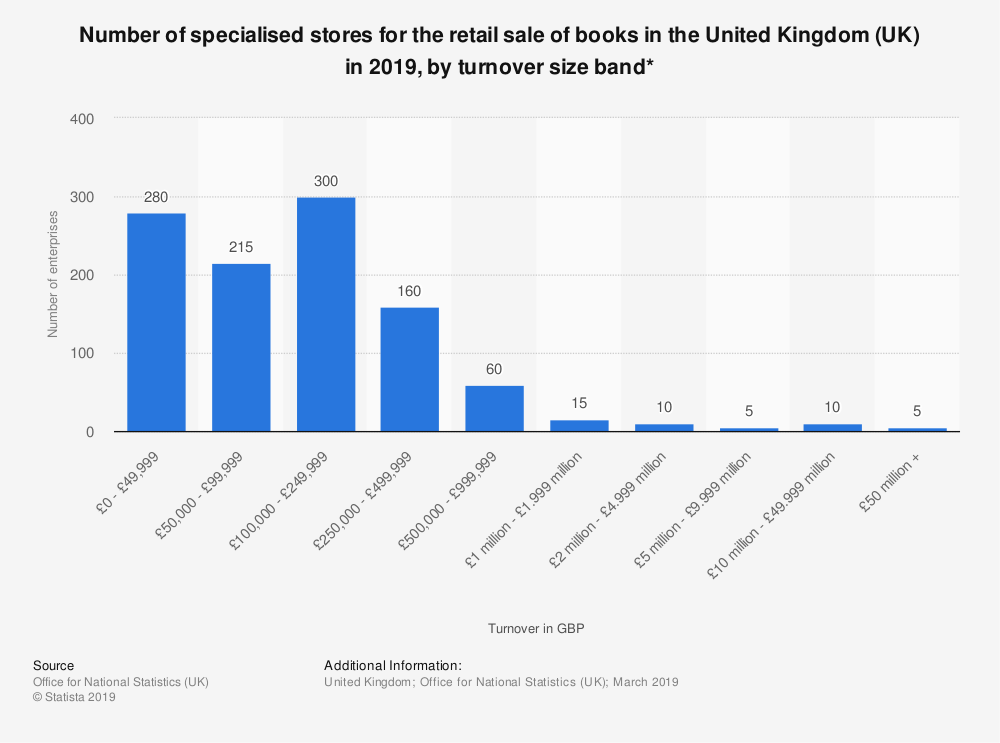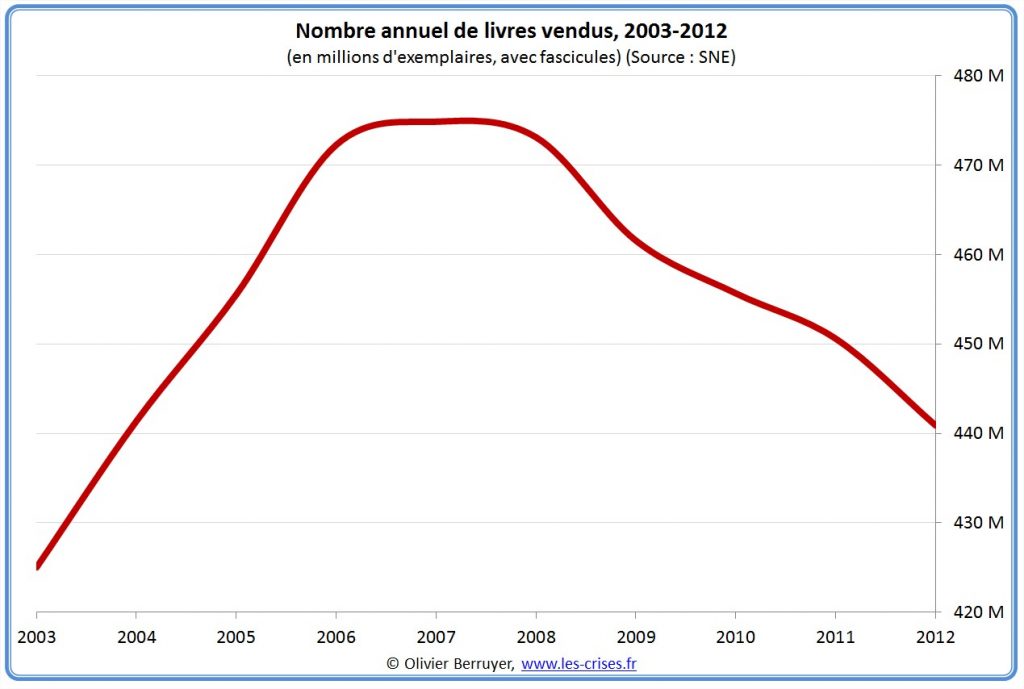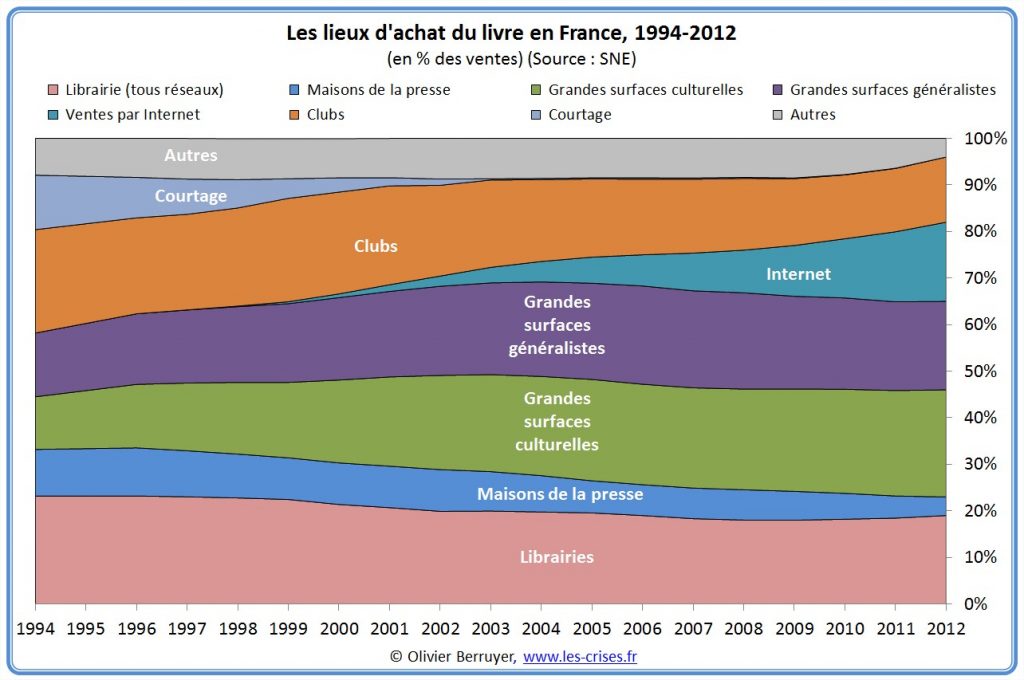Today, I will speak about the reglementation on books’ price in United Kingdom and France. We can ask what are the differences between United Kingdom and France about the reglementation on book’s prices? What are the consequences of the existence or not of a reglementation for bookshops?
We will see, in the first time, the differences between France and United Kingdom about the reglementation on books’ price and in a second time, we will see how the actual situation in these two countries is.
Differences between United Kingdom and France about reglementation on books’ prices
In England, there was an agreement since 1900. It was modified in 1957 to respect the UK legislation and in 1992 because of the decision of Ireland to not applicate the Agreement. The agreement was revoked on 28 September 1995 but not abolished. It happens two years after, in March 1997.
The agreement, called the Net Book Agreement (NBA), was an agreement between the most important publishers and the other members of books market (booksellers, librarians, etc.). Publishers have the right to decide on books ‘price thanks to this Agreement, to impose an individual Resale Price Maintenance (RPM). Its permits to booksellers to know that the price will not change according to the different retailers of books market’s goodwill.
The goal of the Net Book Agreement is to be a mechanism for the administration and a way to enforce the individual Resale Price Maintenance.
In France, there was a business agreement who was repealed in 1979. Now there is still a regulation since 1981, the law Lang, thanks to Jack Lang, Minister of Culture under François Mitterand’s presidency.
Before that this law exists, the huge brands like La Fnac or Gilbert Joseph have exercised percentages of 20% on books. The little bookshops can’t do that because they will lose a lot of money and the price which books are sold can’t hedge the price which the booksellers have bought it.
This law permits that all the books have the same price the place it was buy (bookshops, huge brands like La Fnac or Gilbert Joseph, supermarkets, Internet …). There are the publishers who decide on books’ price and the percentage received by retailers: authors (writers and drawers), publishers, printers, distributors and retail outlets. Retail outlets receive 33 percent of the book’s price.
All the retailers have the right of five percentages of reduction on books’ price. When it is about or books that booksellers haven’t sold for six months, it possible to make a more important reduction.
In case of purchase on Internet, there will the five percentages’ reduction only if the customer will go for the book. This is to encourage customers to go in a bookshop rather than buy on Internet.
This is a law who is against the market and see books as a product different from others. Books are not a mercantile product and have a cultural value.
Actual situation in United Kingdom and in France
According to Mr Justice Buckley, who preside the Restrictive Practices Court in its examination of the Net Book Agreement in 1962, there will be four consequences of the end of Net Book Agreement. First, the number of bookshops will be reduced, there will be less variety in books sold by booksellers, the retail price of books will increase and there will be less books published.
Today, we can see what the real consequences of the end of NBA are. Between 1995 and April 1997, 239 booksellers have left the Bookseller’s Association and there were 195 new booksellers.
Between February 2013 and February 2014, the number of bookshops had fallen from 1,028 to 987 and in November 2015, there was only 895. Over a third of these had closed since 2005 (when there were 1,535 in the UK). Nevertheless, the rate of disappearing of bookshops have slow down, according to Tim Godfray.
In the first graph, UK Price Index for Books and General Consumers Goods, we can see that the books’ price index has increase since 1990. In fact, there is a difference of index of 85 between 1990 and 2007. Furthermore, whereas the books and the General Consumer Goods ‘price index where very closed on 1990 but there is, in 2007, a difference of 25.

Source : Institute for Local Safe Reliance (https://ilsr.org/why-publishers-not-amazon-should-set-book-prices)
The second graph shows that the most part of bookshops (280) earn only between 0 and 49, 99 pounds and only five bookshops earn more than 50 million pounds. It shows that independent booksellers have difficulties to earn their lives and they can lose their shop.

Source: Office for National Statistics (UK) (https://www.ons.gov.uk)
In contrary, in France, within the law Lang, there will be no bookshops in France today in such important amount and with such influence.
There are 3 300 bookshops in 2019 in France. The number of bookshops is stable despite the fact there have be a decrease of 4% since 2007.
In regard of printed books in France, even if the number have decline (it was 475 million of books printed in 2008), there are still 440 million books who are printed in 2012. The number of books printed have increased in nine years by 15 million.

Source : Olivier Berruyier, www.les-crises.fr
On the last graph, we can see that the place of bookshops is still in the same in 1994 and in 2012: around 20 % of sales. On the contrary, for the department stores, there were represent 10% of sales in 1994. Even if their importance has increased, department stores represents the same proportion than bookshops in 2012. Internet doesn’t compete with bookshops: it has begun in 2002/2003 with 3% of the sales and in 2012 with about 15%.

Source : Olivier Berruyier, www.les-crises.fr
We can see that the abrogation of NBA in United Kingdom has got important effects in the situation of independent bookshops. In contrary, in France, with the law Lang, there is a network of bookshops across France.
Conclusion: why bookshops still attract customers?
Booksellers can propose something more interesting than other sellers like Internet or huge brands. They can advise customers; they can really be here for them. They can also organize a meeting with an author, collaborate with the library of the town. Finally, independent bookshops look more human and friendly, it is a place of discussion.
For example, the Bookseller’s Association have created on 2015 the ‘Civilised Saturday’ initiative who is supposed to compete with the ‘Black Friday’ by proposing in independent bookshops several promotions like give customers tea and cake.
Sitographie
- Institute for Local Safe Reliance: https://ilsr.org/why-publishers-not-amazon-should-set-book-prices/
- Statista : https://www.statista.com/statistics/467109/uk-enterprises-in-the-retail-sale-of-books-by-turnover/ but the official source: Office for National Statistics (UK) https://www.ons.gov.uk
- Olivier Berruyier, www.les-crises.fr
- La Croix, « Aujourd’hui, les libraires s’en sortent au prix de la passion » : https://www.la-croix.com/Culture/Aujourdhui-libraires-sen-sortent-prix-passion-2019-06-30-120103230
- Local Libraries and Independent Bookshops in the UK, House of Lords
- Dearnley James and Feather John, The UK Bookselling Trade Without Resale Price Maintenance An Overview of Change 1995-2001
- Ansell Elaine, Some effects of the end of the Net Book Agreement
